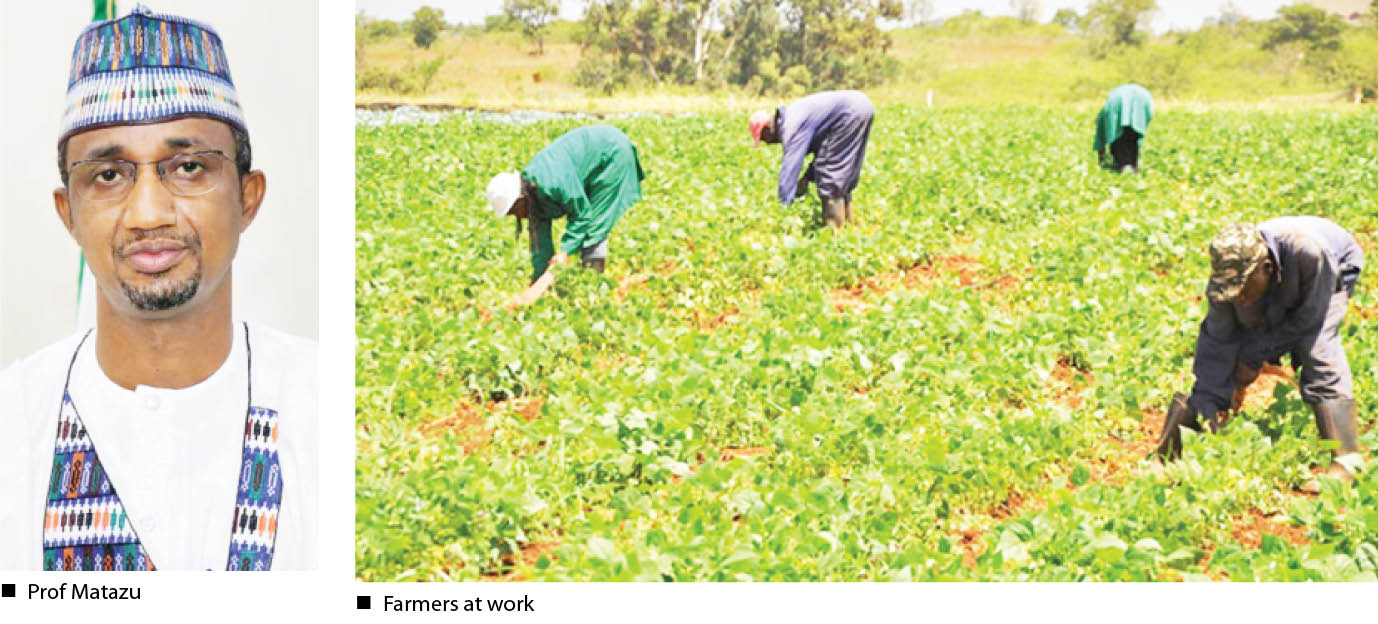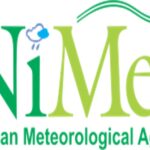The recent presentation of the 2022 Seasonal Climate Prediction (SCP) by the Nigerian Meteorological Agency has excited stakeholders especially farmers, businesses and individuals who rely on the forecasts to plan for the season.
“When the federal government under President Muhammadu Buhari told us that the youth should go back to farm, the first challenge we had was how to combat the effect of climate change. But we were relieved three years ago when NiMet came with the Seasonal Climate Prediction which they introduced to us.
- CJN seeks capacity building for judiciary
- Ganduje to Shekarau faction: Accept defeat, join us to develop Kano
“Those of us who did not believe in the predictions ran into debt while those who followed them recorded improved yields.”
The statement above was by Mr. Olalekan Kayode, a farmer from Atisbo Oyo State, expressing his delight with the contribution of the seasonal climate prediction to their farming activities over the years.
Amidst the plan by the federal government to boost food security and lift 100 million people out of poverty, agriculture remains a veritable sector and major employer of labour for millions of people. But there is the need for farmers to increase yields and maximise the huge potentials in the sector.
This is why the seasonal climate predictions remain very handy for farmers across the country as they guide them in terms of planting, the direction of rainfall for the year and the expected yield in the farming season.
A member of the All Farmers’ Association of Nigeria (AFAN) from Jigawa State, Abdullahi Adamu Sankara, said they have consistently used the SCP to predict outcomes of their annual farming activities.
“We have not regretted using the predictions and we are proud of what the federal government is doing to support farmers and encourage them to deepen food security in the country,” he said.
In the area of aviation, the SCP has been described as a veritable instrument to boost safe flight operations and educate the operators on the direction of rain during the year. Through that, passengers can also be enlightened when flights would be delayed and enable them to plan their movements.
This is said to compliment the regular impact-based weather alert issued to airline operators and road transporters on hazardous weather at every point in time.
What to expect this year?
In line with the prediction, farmers have no cause to worry about this year’s planting season.
The NiMet Director-General and Permanent Representative of Nigeria to the World Meteorological Organisation (WMO), Prof. Mansur Matazu, told the farmers that the year is expected to be normal—with an only slight abnormality
He said this year’s Seasonal Climate Prediction showed it would be a normal year with some abnormality within the season.
“But generally speaking, rain will come early. In the next few weeks, the rain will begin to establish. We have been experiencing occasional showers around the coastline but the planting period in the Coastal Delta area would be around 28th of February to 4th of March when the rain will come and by April and May, the rain would be established in the central states while between June to July, the rain would be fully established in the extreme northern states.
“So generally speaking, it is a normal year with some abnormality in terms of amount and of course also the occasional spell that happens within the season. The document provides the timing of this anomaly.”
He stated that the SCP is a major flagship product of NiMet to the general public because a certain number of socio-economic activities in the country rely on the credibility of climate, adding that “We have been doing this for the last 10 years.”
“We have even gone far to downscale this forecast on various states and local government levels and major sectors of our economy – agriculture, water resources, health, aviation and other forms of transportation, including construction and insurance.
“We have been getting feedback from various sections of this country and testimonials on the positive implication of this vital information in the form of forecasts and advisory.
“This really is part of the mandate of the organisation and we are ready to do more especially with the positive feedback we have been getting. Also, we are diversifying in producing tailor-made data based on the request of the various sectors and users.”
According to him, NiMet had already gone further in producing tailor-made predictions for several organisations.
He further told Daily Trust: “NiMet is excited to push this vision and help in the recovery of the economy after the trying phase where the global pandemic affected some of the gains made previously through agriculture.
“However, the vagaries of weather and climate are not limited to agriculture. Other socio-economic sectors also have weather and climate as a critical component. That is why the SCP, which will be unveiled today by the Honourable Minister of Aviation, is very essential for all.
“The content is multi-sectoral with co-produced socio-economic implications of the prediction by NiMet and relevant stakeholders,” he stated.
The Minister of Aviation, Senator Hadi Sirika, who unveiled the SCP gave a vivid description of the growing season for the year, told stakeholders that it “will be of great judgment to apply this information and data as the season unfolds while essential updates and necessary sensitization will be embarked on by NiMet to guide users of these products all through the season.”
He said, “For the annual total rainfall, the prediction indicates that the annual rainfall amount is expected to be normal in most parts of the country. The annual rainfall amount is expected to range from 390mm in the North to over 2790mm in the South.
“Annual rainfall amount ranging from 390mm to 790mm is anticipated in some parts of Borno, Yobe, Jigawa, Katsina and Sokoto states. The central states such as Nasarawa, Taraba, Kogi, Benue and the FCT, as well as Ekiti, Osun and Oyo, are anticipated to record 1190mm to 1590mm of total rainfall.
“Furthermore, from May to August 2022, dry spells of different degrees of severity ranging from mild to severe are predicted for different parts of the country.
“Moderate dry spells persisting for up to 15 days are predicted over parts of Adamawa, Benue, Kogi, Ekiti, Kwara, Niger, FCT, Kaduna, Sokoto, Kebbi and Gombe.
“Parts of Kebbi, Katsina, Jigawa, Yobe, Borno, Nasarawa and Plateau states may experience a severe dry spell that could persist for up to 20 days or longer in June 2022.
“Pertaining to temperatures, NiMet predicts daytime and night-time temperature forecast for the months of January – April and from which the country is projected to expect warmer January, cooler days in February over the North but warmer nights over the South.
“Also, warmer days over the North and cooler nights around the south are predicted for the month of March. The month of April is forecast to experience warmer daytime temperatures and cooler than long-term average night-time temperatures.
“The Malaria and Cholera Vigilance Maps and socio-economic impacts of the forecast across various sectors are also presented in the SCP document.”
The Director-General, Nigeria Hydrological Services Agency (NIHSA), Engr. Clement Nze, said the forecasting agencies are doing their best to support the public with accurate predictions.
He said it is now left for the public to make optimum use of the forecasts.
Other stakeholders also said they look forward to the SCP to drive their activities for the year.
Speaking on the SCP 2022, Professor Nasiru Medugu Idris, Dean, Faculty of Environmental Science, Nasarawa State University Keffi, explained that NiMET as an agency plays a significant role in different spheres of the economy.
“Every year NiMET provides scientific information and evidence to all the stakeholders on their forecast and predictions for the year.”
Nnimmo Bassey, an environmental activist and former chairman Friends of the Earth International said predictions by NiMET helped farmers plan their activities and avoid losses.
He, however, said the main challenge was passing the information to farmers, especially those in the rural areas.
“Most of the farmers in the villages may not have access to this information, because we do not have sufficient number of extension workers in our rural areas that can really go and tell the farmers and the community, this is what is going to happen.”
Bassey explained that from experience, “people are going to start planting immediately they see the rain, so there might be negative impact on the farming and agricultural production even though there is this advance warning.’’
He, therefore, advised that governments should employ and train more extension workers who are close to the grassroots. “Right now it is well known that there is a great deficit of these people who can pass information to the rural communities – through the leaders to the town criers and to the people,’’ he said.
From Abdullateef Aliyu (Lagos) Chris Agabi & Baba Martins (Abuja)

 Join Daily Trust WhatsApp Community For Quick Access To News and Happenings Around You.
Join Daily Trust WhatsApp Community For Quick Access To News and Happenings Around You.